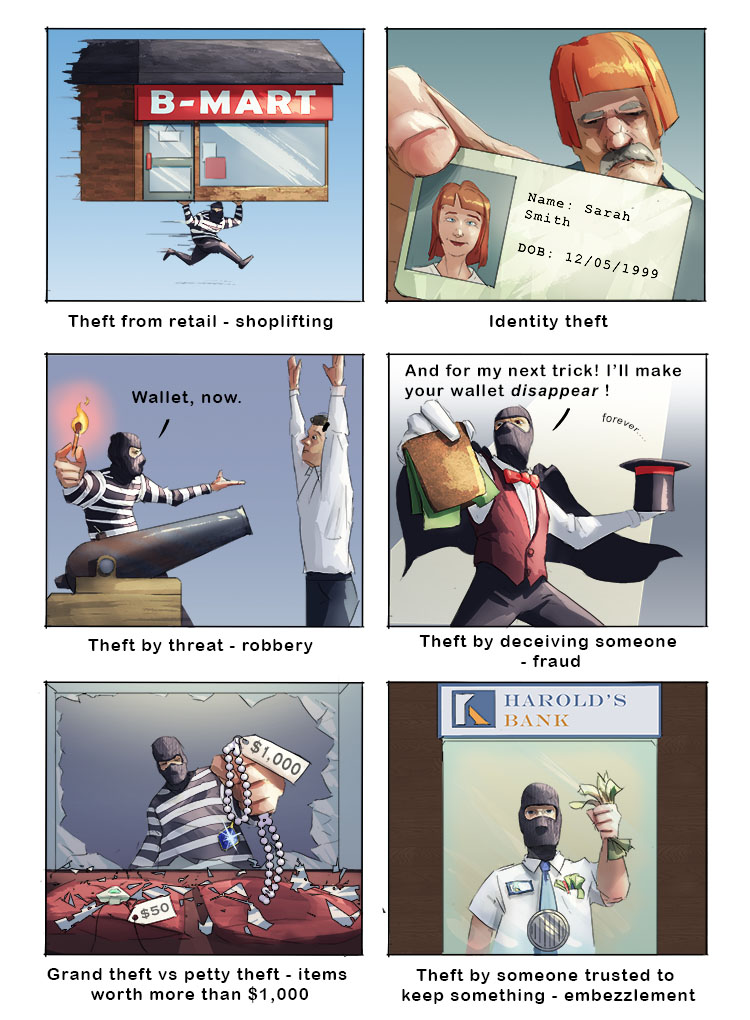Theft – The action or crime of taking something that does not belong to you with the intent of permanently depriving the owner.
We all think we know what theft is, so we don't need a mnemonic here, but just remember that the law considers many different types of theft:

Note: The crime of grand theft only exists in North America and the value set can vary from state to state or place.
A clear-cut case of theft is where it can be proved beyond doubt that someone took something they did not own with the intention of permanently depriving the rightful owner.
However, the law places clear distinctions on different types of theft. For instance, while "petty theft" is the most common form, involving items of relatively low value, the law takes a particularly serious view of theft from companies, charities and other organisations by people who work within them in positions of trust.
But how do religious people view theft? Is it permissible for a poor person to steal a loaf to feed their family, on the basis that letting the family starve would be a greater evil?
And yet, for instance, one of the Ten Commandments is: Thou shalt not steal.
Although there are some corrupt and dysfunctional regimes under which abhorrent punishments are meted out for even minor crimes, most of the world has moved on from the days when people had their hands cut off for stealing food.
Many religions teach compassion for those who steal. While recognising that those who steal out of greed rather than dire circumstances need to be punished as well as reformed, they call for understanding of the full circumstances, and for forgiveness and redemption.
While the general rule that theft is wrong still stands, and there is general recognition that it needs to be punished to varying degrees, the key words for most faiths are mercy, compassion and reconciliation.




